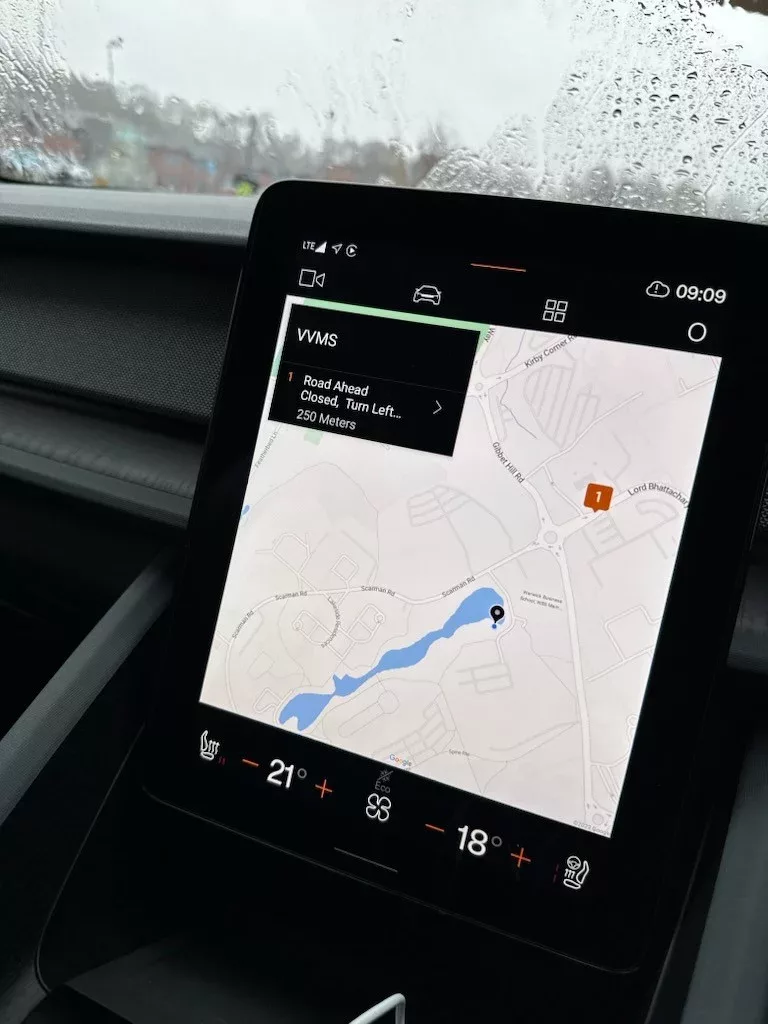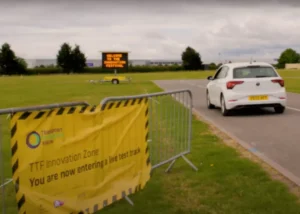A group of data experts have successfully delivered live, dynamic in-vehicle signage into a vehicle’s head unit using the car’s own connectivity rather than a tethered smartphone
Transport for West Midlands and KL Systems transmitted real-time road signs into a Polestar vehicle during tests at Warwick University. The demonstration proves that connected cars can automatically receive location-specific information and safety “virtual” messages, reducing and eventually doing away with the need for roadside variable message signs This builds on previous demonstrators undertaken by the Transport Technology Forum and RAC Foundation demonstrations using smartphones
The work is part of a wider project between TfWM, Midland Connect, National Highways, M6 Toll Ltd and the Department for Transport looking at delivering in-vehicle messaging for the M6 Toll. TfWM created several messages around Warwick University using their in-vehicle messaging system created by Sterling Allied Services & Amey in conjunction with KL Systems. These were displayed in the Polestar as the vehicle drove past the virtual VMS sites.
“With Android Automotive, there is no need to pair your phone to receive in-car messages,” explained George Brown of KL Systems. “Essentially it replaces the infotainment unit and more in the car, and you download the apps directly into the car not your phone, which opens up so many possibilities to reach the driver with critical messages at the right time and place and a better user experience.
“Polestar assisted with testing the app and brought a car to Warwick with the app installed on its Android Automotive head unit supporting both static and live drive demonstrations at the conference and around the campus.”
“We see this as a very exciting opportunity to manage driver behaviour to make our network more efficient,” added Matthew Shelton, Future Transport services and Technologies Lead at TfWM. “For example, we cannot justify putting in an expensive network of physical VMS around Edgbaston cricket ground in Birmingham for a handful of busy matchdays, but the virtual system would allow us to reach all drivers with correct advice and keep traffic in the area flowing. This is just one obvious example of how this technology can make a real difference.”
The next step of the project is to use a group of selected people in vehicles with access to the technology to test it in real-world conditions on the M6, M6 Toll and other roads in the West Midlands. The trial will not only look at technical solutions but also how messages should be phrased to best influence driver behaviour.
More details of this technology will be shared at the TTF Conference in Leeds, 25-27 April.
(Picture – TTF/KL Systems)























